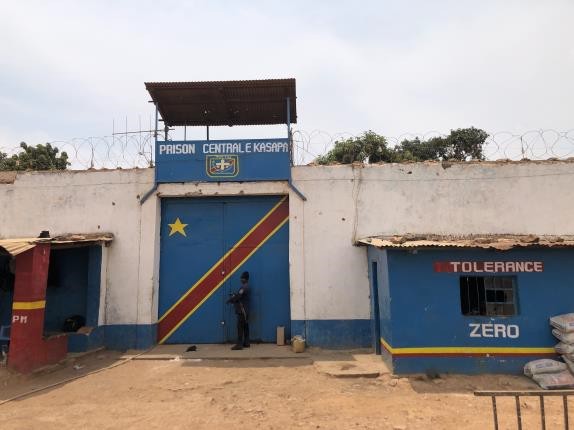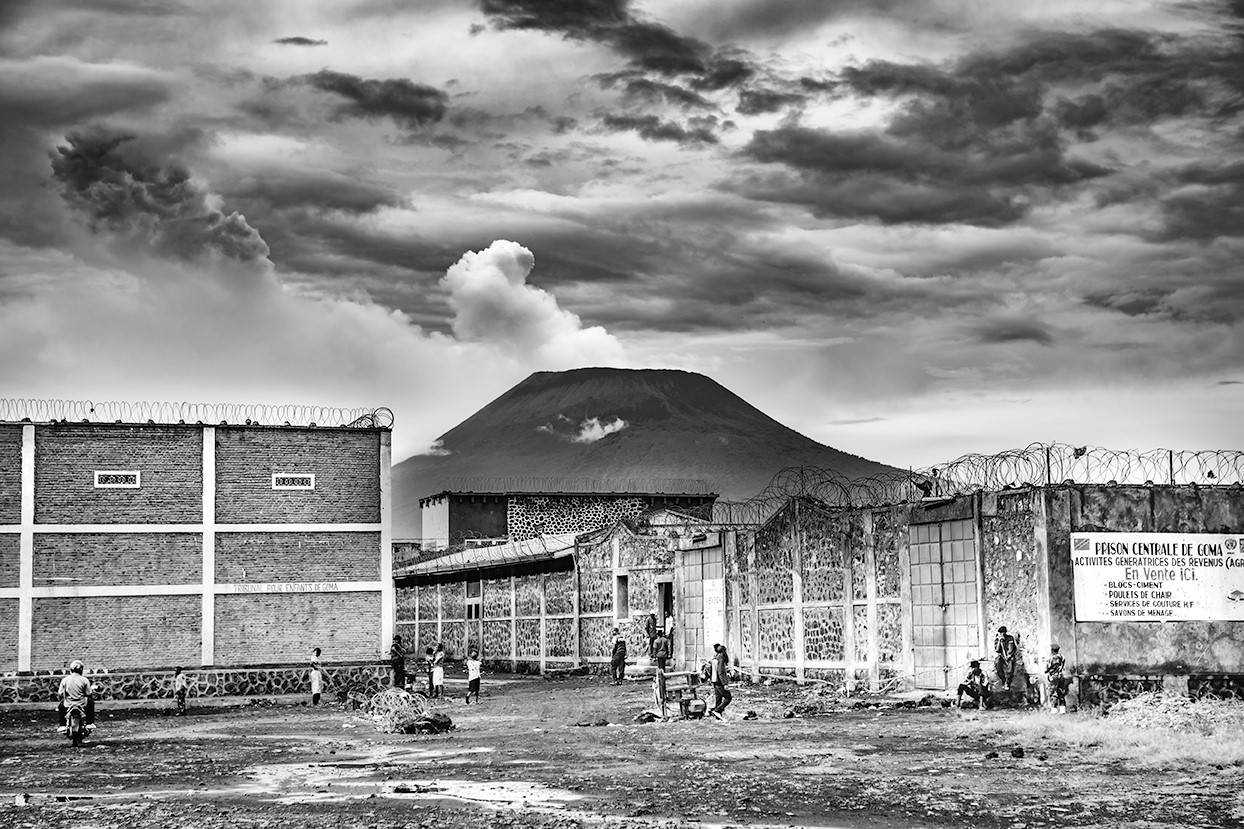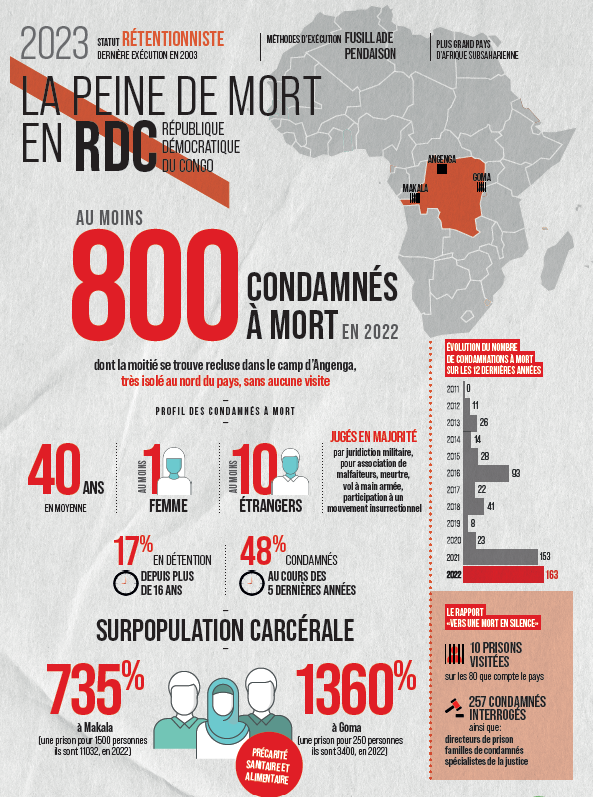
ECPM and CPJ regret this new step towards the resumption of executions as well as the extended criteria for its application. As of February 5, the lifting of the moratorium concerned military service members sentenced to death for treason on the front lines. This announcement had already alerted national and international abolitionist movements, and was the subject of a press release in which 80 signatories denounced the terrible setback it would represent for the country, which has been under a moratorium since 2003.
In the circular note of March 13, 2023, the Minister of Justice, Madame Rose Mutombo Kiese, informs that the death penalty will be executed in cases of treason as well as in cases of terrorism and urban banditry resulting in death. Consequently, the death penalty will be carried out for both military and civilians, by virtue of a significantly broader scope of application.
ECPM and CPJ emphasize that the application of the death penalty will have none of the intended effects on the ground, aside from fuelling false and dangerous ideas that the death penalty could help put an end to the war and atrocities in the East of the DRC and address the root causes of urban crime.
ECPM and CPJ call for the non-instrumentalisation of the death penalty. The resumption of executions will result in a repressive climate in which anyone who expresses ideas that are not in line with those of the authorities is likely to be targeted, making the death penalty a tool of political repression.
We urge the President of the Republic to continue to uphold the principles of the rule of law by respecting the Constitution of 2006, which enshrines the right to life in its Article 16, as well as the international conventions ratified by the DRC, particularly the International Covenant on Civil and Political Rights.
At the beginning of 2024, over 800 death row prisoners are detained in Congolese prisons. The majority of them are sentenced to death for crimes such as criminal association, armed robbery, and participation in an insurrectional movement. Under the new criteria set out in the circular note, they are all therefore eligible for execution.
The Democratic Republic of the Congo must join the current trend towards abolition across the African continent. Despite episodes of great violence, countries like Chad and the Central African Republic have taken the step and abolished the death penalty. By virtue its size, economic and strategic importance, and above all, its history, if the DRC were to decide to abolish the death penalty, it would set a real example both in Africa and globally.

